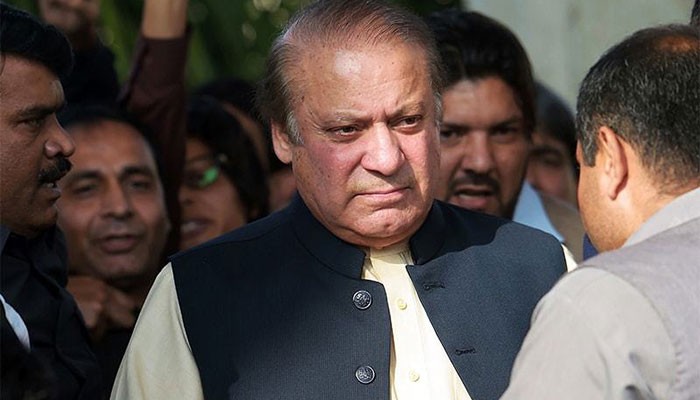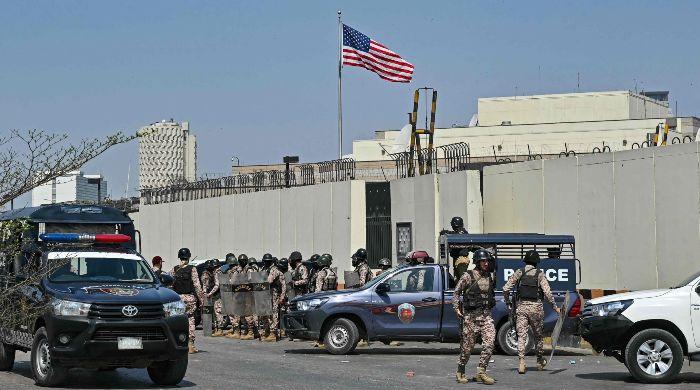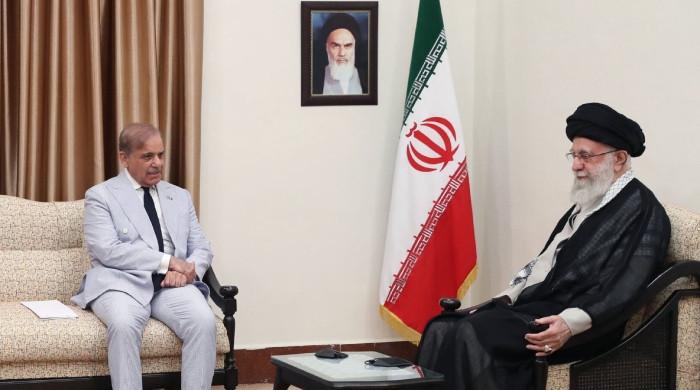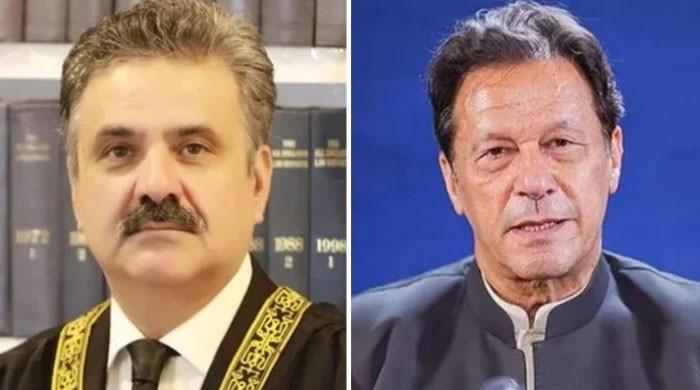Nawaz's counsel granted time as SC hears Article 62 case
A five-member larger bench, headed by Chief Justice Mian Saqib Nisar, is hearing the case
January 31, 2018
ISLAMABAD: Former prime minister Nawaz Sharif's counsel Azam Tarar appeared today in the Supreme Court as it began proceedings of the case pertaining to the disqualification time period of lawmakers.
A five-member larger bench, headed by Chief Justice Saqib Nisar, is hearing the case to determine the duration of disqualification of elected officials on violation of Article 62(1)(f) and other related laws.
As the hearing went under way, Tarar requested the court for time to prepare for the case.
The chief justice accepted the plea and directed Nawaz's counsel to come prepared next week.
The hearing of the case then continued, with several senior leaders of Pakistan Muslim League-Nawaz in attendance.
Chief Justice Nisar questioned whether a disqualified lawmaker could contest a by-election or the general election.
Counsel of one of the petitioners, Waseem Sajjad, contended that the duration of disqualification should be five years.
Justice Azmat Saeed asked how a court declaration can end on its own in five years, adding that if this happens Article 62(1)(f) will be rendered ineffective.
The chief justice wondered if someone declared dishonest three months before elections can contest the polls.
Senior counsel Tariq Mahmood argued that if articles 62 and 63 are read together, the duration time period is of five years whereas Advocate Muneer A Malik, appointed amicus curiae by the court, argued that articles 62 and 63 should be read together.
Malik stated further that the articles have to be read in such a way that the basic rights of a lawmaker are not affected.
"Disqualification was declared time bound in the 18th Amendment," Malik added.
After Malik completed his arguments, Pakistan Tehreek-e-Insaf (PTI) leader Jahangir Tareen's counsel Sikandar Bashir Mohmand began presenting his arguments.
Mohmand contended that he does not support determining the disqualification durations on a case-to-case basis.
After Mohmand wrapped up his arguments, the hearing was adjourned until Thursday (tomorrow).
At Monday's hearing, the bench was informed that neither Nawaz nor any counsel representing him is present in court.
"If Nawaz doesn't want to come then that's his choice," the chief justice remarked, adding that an ex-parte decision, based on merit, will be made in case he doesn't show up."
The court then issued another notice to Nawaz to appear in court today or be represented by a counsel.
Later, the court issued a public notice asking anyone who will potentially be affected in the case to approach the apex court to be heard otherwise ex-parte proceedings would take place.
The court also declared on Tuesday senior advocate Muneer A Malik and Barrister Ali Zafar as amicus curiae (friend of the court), whereby they will assist the bench in the case.
The bench comprises Justice Sheikh Azmat Saeed, Justice Umar Ata Bandial, Justice Ijazul Ahsan and Justice Sajjad Ali Shah.
'Sadiq and Ameen'
Article 62(1)(f) reads: "A person shall not be qualified to be elected or chosen as a member of Majlis-e-Shoora (Parliament) unless-...he is sagacious, righteous and non-profligate, honest and ameen, there being no declaration to the contrary by a court of law."
On December 15, last year, the Supreme Court had disqualified Tareen for failing to declare an offshore company and a foreign property in his election nomination papers.
Similarly, then-prime minister Nawaz Sharif was disqualified on July 28, 2017 for concealing in his nomination papers the receivable income from his son's company in UAE.
Taking up a case of the article's interpretation in 2016, then-chief justice Anwar Zaheer Jamali had observed how the disqualified on the basis of articles 62 and 63 could be forever as a person could reform his or herself and then be considered qualified as per the law.













